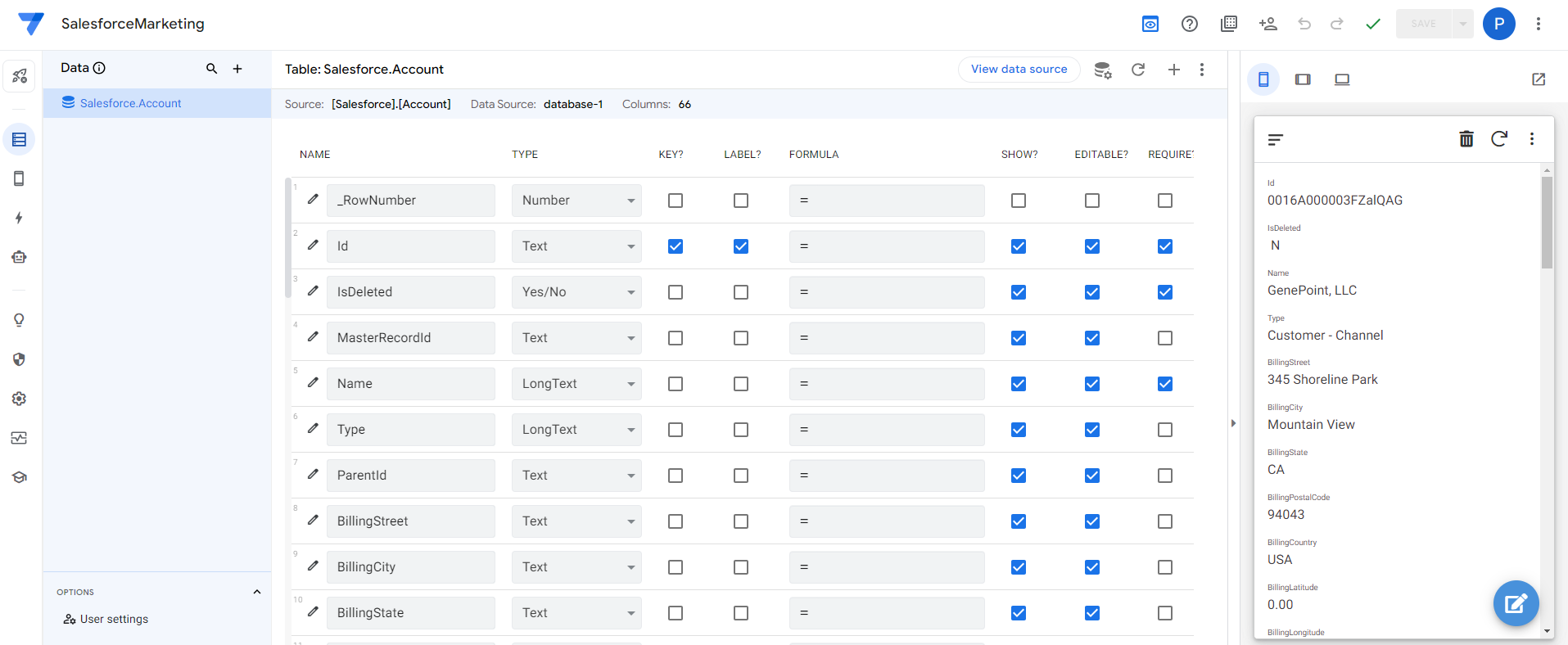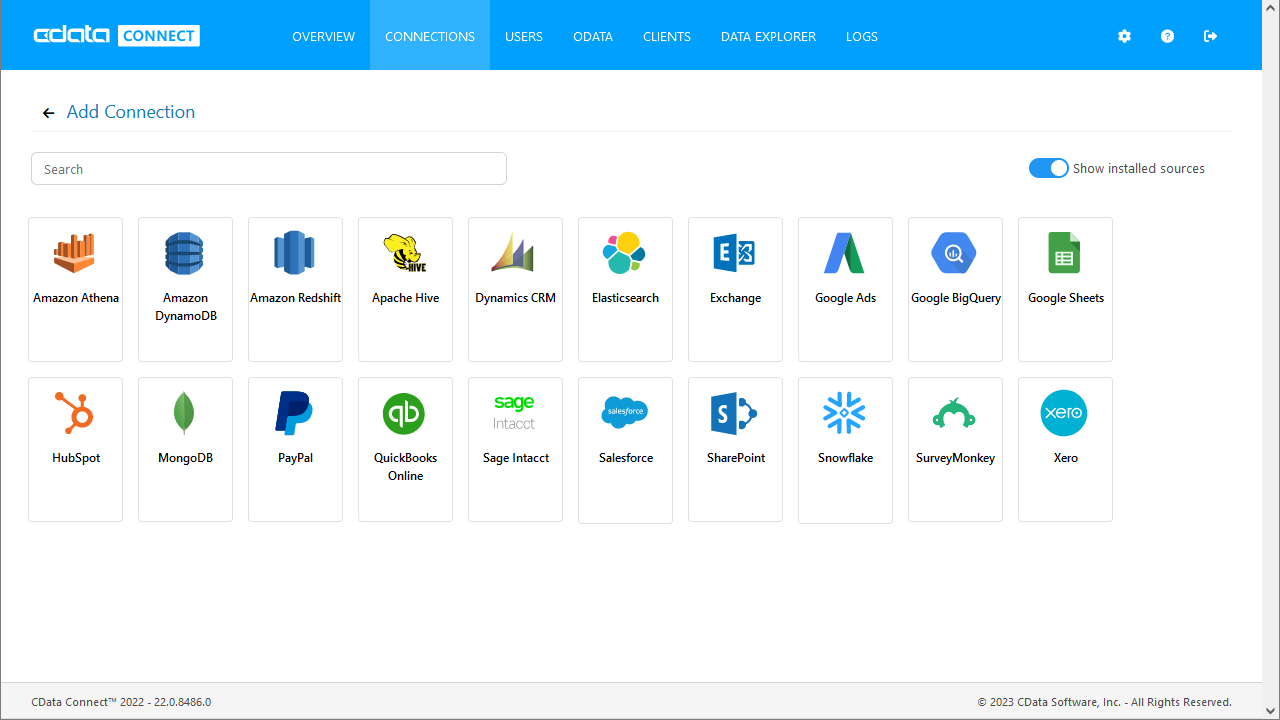Discover how a bimodal integration strategy can address the major data management challenges facing your organization today.
Get the Report →Create Aha-Connected Business Apps in AppSheet
Use CData Connect Server to connect to Aha from AppSheet and build custom business apps using live Aha data.
AppSheet provides a no-code development platform for application software, which allows users to create mobile, tablet, and web applications. When paired with CData Connect Server, you get instant access to Aha data for business applications. This article shows how to create a virtual database for Aha in Connect Server and build a simple app from Aha data in AppSheet.
CData Connect Server provides a pure SQL Server interface for Aha, allowing you to easily build reports from live Aha data in AppSheet — without replicating the data to a natively supported database. As you build visualizations, AppSheet generates SQL queries to gather data. Using optimized data processing out of the box, CData Connect Server pushes all supported SQL operations (filters, JOINs, etc) directly to Aha, leveraging server-side processing to quickly return the requested Aha data.
Create a Virtual SQL Server Database for Aha Data
CData Connect Server uses a straightforward, point-and-click interface to connect to data sources and generate APIs.
-
Login to Connect Server and click Connections.
![Adding a connection]()
- Select "Aha" from Available Data Sources.
-
Enter the necessary authentication properties to connect to Aha.
Start by setting the Profile connection property to the location of the Aha! Profile on disk (e.g. C:\profiles\aha.apip). Next, set the ProfileSettings connection property to the connection string for Aha! (see below).
Aha! API Profile Settings
The Aha! API uses OAuth-based authentication.
You will first need to register an OAuth app with Aha!. This can be done from your Aha! account under 'Settings' > 'Personal' > 'Developer' > 'OAuth Applications'. Additionally, you will need to set the Domain, found in the domain name of your Aha account. For example if your Aha account is acmeinc.aha.io, then the Domain should be 'acmeinc'.
After setting the following in the connection string, you are ready to connect:
- AuthScheme: Set this to OAuth.
- InitiateOAuth: Set this to GETANDREFRESH. You can use InitiateOAuth to manage the process to obtain the OAuthAccessToken.
- OAuthClientId: Set this to the client_id that is specified in you app settings.
- OAuthClientSecret: Set this to the client_secret that is specified in you app settings.
- CallbackURL: Set this to the Redirect URI you specified in your app settings.
- Domain: Set this in the ProfileSettings to your Aha domain.
![Configuring a connection (SQL Server is shown).]()
- Click Save Changes
- Click Privileges -> Add and add the new user (or an existing user) with the appropriate permissions.
With the virtual database created, you are ready to connect to Aha data from AppSheet.
Connect to Aha in AppSheet
The steps below outline connecting to CData Connect Server from AppSheet to create a new Aha data source.
- Log into AppSheet.
- Click the letter icon in the top-right corner, then select Account Settings.
![Creating a new data source]()
- Click the Sources tab and click + New Data Source. Then, select Cloud Database.
![Creating a new data source]()
- Set the connection information to the following:
- Type: SQLServer
- Server: the endpoint for your instance, including port, for example, CONNECT_SERVER_URL,3306
- Database: the virtual database, for example, API1
- Username: a Connect Server user with permissions for the database
- Password: the password for the above Connect Server user
- SSL: Require SSL
![Connecting to Connect Server]()
- Click Test. Then, click Authorize Access.
Create an App
Once you create the data source for Aha, you can start building apps on Aha data.
- Start by clicking + Create -> App -> Start with existing data.
- Name the app and select an appropriate category, based on your data. Then, click Choose your data.
- Select the newly created data source (e.g., API1).
- Select the table or view with the data you want.
![Selecting a table]()
At this point, you can configure the design of your app, selecting which columns from the selected table to display, use as labels, and more. Preview the app in the preview panel and then publish or share it when ready.

To get SQL data access to 200+ SaaS, Big Data, and NoSQL sources directly from your applications, try the CData Connect Server.











